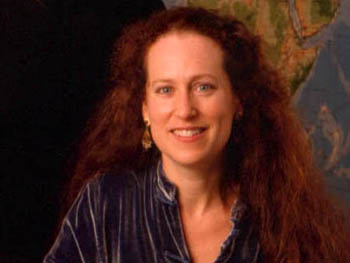
SCS Dean's Professor, School of Computer Science
Gates Hall 5107, 5000 Forbes Avenue
Carnegie Mellon University
Pittsburgh, PA 15213
justine @ cs.cmu.edu
412.204.6268
Justine Cassell is a senior researcher in the ALMAnaCH NLP group at INRIA Paris, the French National Institute for Research in Digital Science and Technology, where she also holds the founding international chair at the PRAIRIE Paris Institute on Interdisciplinary Research in AI (one of French President Macron's four AI Institutes). She also retains her position as SCS Dean's Professor in the School of Computer Science at Carnegie Mellon University, with courtesy appointments in Psychology, Linguistics, and the Center for the Neural Basis of Cognition. . In January 2021, Cassell was named a member of the 21 person French governmental committee CNNUM (Conseil National du Numérique) - the Council on the Future of Digital in France. Before taking the position at Inria, Cassell was Associate Dean of Technology Strategy and Impact in the School of Computer Science, a founding co-director of the Simon Initiative on Technology-Enhanced Learning, and founding co-director, with Professor Tom Mitchell, of the Yahoo (Oath/Verizon) InMind Project on the Future of Personal Assistants. She is Director Emerita of the Human-Computer Interaction Institute, also in the School of Computer Science at CMU. Her complete CV can be found at the top of the papers section of this website. Prior to her arrival at CMU, Cassell was the founding director of both the Center for Technology and Social Behavior, and the Technology and Social Behavior joint Ph.D. in Communication and Computer Science at Northwestern University. Cassell previously held a tenured professor appointment at the MIT Media Lab where she directed the Gesture and Narrative Language Research Group. Cassell won the Edgerton prize at MIT in 2001, in 2008 was awarded the Anita Borg Institute Women of Vision award for Leadership, In 2012 was named a AAAS Fellow and in 2016 was named both a Royal Society of Edinburgh Fellow and ACM Fellow. In 2018 Cassell was awarded the Henry and Bryna David prize for social science applicable to public policy, and in 2023 was awarded an honorary doctorate by the University of Edinburgh. In between, her work has been awarded a number of best paper prizes, and has received various other kinds of accolades. Cassell has spoken at the World Economic Forum meetings in Davos for 9 years on topics pertaining to artificial intelligence and its role in society. In 2011 she was named to the World Economic Forum Global Agenda Council on Robotics and Smart Devices, which she then chaired. She currently serves as a member of their expert forum. She holds a DEUG in Literature from the Université de Besançon (France), an M.Litt in Linguistics from the University of Edinburgh (Scotland), and a dual Ph.D. from the University of Chicago (USA), in Psychology and in Linguistics. Cassell's research interests originated in the study of human-human conversation and storytelling. Progressively she became interested in allowing computational systems to participate in these activities. This new technological focus led her to deconstruct the linguistic elements of conversation and storytelling in such a way as to embody machines with conversational, social and narrative intelligence so that they can interact with humans in human-like ways. Increasingly, however, her research has come to address the impact and benefits of technologies such as these on learning and communication. In particular, Cassell is credited with developing the Embodied Conversational Agent (ECA), a virtual human capable of interacting with humans using both language and nonverbal behavior (more information here). More recently Cassell has investigated the role that the ECA can play in children's lives, as a virtual peer support for learning (more information here). The virtual peer technology has been used in a range of contexts, including to study and scaffold the development of curiosity in elementary school students (more information here), to better understand the ways in which children who come to school speaking non-mainstream dialects of English can maintain this important index of culture and identity, while still achieving school success (more information here),and to address the learning of contingent social skills in children with high-functioning autism (more information here). Most recently Cassell and her team have developed a paradigm to study how social interaction may play an essential role in collaboration among peers. This work includes collecting information on how children align their words, their body language and their very brain waves during effective collaboration. The goal of this work is to build tools to help teachers optimize small group collaboration in the classroom. In other work, Cassell has employed linguistic and psychological metrics to examine the long term effects of online community on young people's self-esteem, self-efficacy, and sense of agency. This work focuses on the Junior Summit, the world's first large-scale online community for young people, which in 1998 brought together in an online forum more than 3000 young people from 139 countries. Once machines have human-like capabilities, can they be used to evoke the best communicative skills that humans are capable of, the richest learning? This is the goal of Cassell's research: to develop technologies that evoke from humans the most human and humane of our capabilities, and to study their effects on our evolving world.
|
|
welcome
|
|
people
|
|
research
|
|
courses
|
|
activism
|
|
papers
|
|
press
|
|
